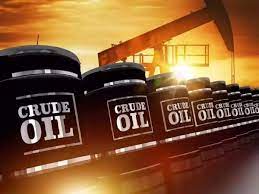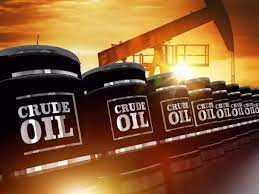
Russia postponed a Saturday deadline to reinstate flows through the Nord Stream 1 pipeline to Europe, citing a fault found during servicing, compounding Europe's difficulties in obtaining gas for the winter.
From August 31 to September 2, the Nord Stream 1 pipeline, which transports gas from Russia to Germany, was undergoing maintenance, slashing flows to zero and elevating fears of a protracted supply standstill as well as further European gas price increases.
Russia already had reduced Nord Stream flows to 20 per cent of capacity.
Moscow claims that International sanctions over Ukraine's invasion are impeding equipment repairs, while Europe claims that this is a convenient excuse to decrease flows and then use gas as a political weapon. Russia rejects this argument.
The following are some of the factors in explaining the effect of Russian supplies on Europe's gas markets, which include those that do not straightforwardly depend on Russian gas.
Traditionally, Europe has depended on Russia for approximately 40 per cent of the natural gas it uses, with the majority delivered via pipelines such as Yamal, which traverses Belarus and Poland to Germany, Nord Stream 1, which goes straight to Germany, and pipelines via Ukraine.
The internal gas markets of Europe are linked by a network of interconnected pipelines.
Not all countries get gas straight from Russia, but if nations like Germany, Europe's highest purchaser of Russian gas, got less of the gas, they would be required to cover up the gap from supplies from other sources, such as Norway, which brings down the gas that would be available for other countries.
Consequently, adjustments in Russian supplies of gas can result in as much volatility in British gas prices as in the remainder of Europe, despite the fact that Britain receives less than 4 per cent of its gas from Russia. Reduced Russian supply implies that less may be accessible from Norway, its biggest supplier.
Russian gas flows to Europe have already decreased in the first seven months of 2022, with transfers through the three major pipeline pathways falling by around 40 per cent when compared to the same period in 2021.
Gas transfer via Yamal, which previously shipped gas from Russia to Europe, have been flowing eastwards, from Germany, to Poland since the beginning of the year.
Flows through Nord Stream and Ukraine, which were already lower than last year, began to fall in March following Russia's invasion of Ukraine, which Moscow described as a "special military operation."
Moscow has cut gas supplies to Bulgaria, Finland, Poland, Danish supplier Orsted, Dutch firm Gasterra, and Shell for German contracts this year after they all refused a Kremlin demand to switch to rouble payments.
Several companies, including Germany's Uniper and RWE, as well as Italy's Eni, paid under Russia's new scheme while continuing to receive gas.
However, many companies, including Uniper and RWE, have seen their supply cut, with France becoming the latest company to be told by Gazprom that it will receive less gas on Tuesday.
On Tuesday, France accused Moscow of using energy as a "weapon of war." Energy Transition Minister Agnes Pannier-Runacher told France Inter radio that the country must prepare for the worst-case scenario of a total shutdown of Russian gas supplies. The reduction in Nord Stream gas flows has driven up European and British gas prices, with prices reaching record highs last week ahead of the Aug. 31-Sept. 2 maintenance.
The European Union intends to phase out its reliance on Russian fossil fuels by 2027 and has begun to look for alternatives, such as increasing imports of global liquefied natural gas (LNG).
According to Refinitiv data, European LNG imports increased by about 56% in the first half of 2022 compared to the same period in 2021, reflecting increased capacity in the United States and high prices in Europe attracting more cargoes.
However, Europe has limited LNG receiving capacity, and supply concerns have grown since production was halted at a major U.S. export plant owned by Freeport LNG due to an explosion.
Freeport announced last week that the planned start-up of the plant, which can export up to 15 million tonnes per annum (MTPA) and has been offline since June due to a fire, has been pushed back to late November from October. The full operation is expected to begin in March.
(Source:www.reuters.com)
From August 31 to September 2, the Nord Stream 1 pipeline, which transports gas from Russia to Germany, was undergoing maintenance, slashing flows to zero and elevating fears of a protracted supply standstill as well as further European gas price increases.
Russia already had reduced Nord Stream flows to 20 per cent of capacity.
Moscow claims that International sanctions over Ukraine's invasion are impeding equipment repairs, while Europe claims that this is a convenient excuse to decrease flows and then use gas as a political weapon. Russia rejects this argument.
The following are some of the factors in explaining the effect of Russian supplies on Europe's gas markets, which include those that do not straightforwardly depend on Russian gas.
Traditionally, Europe has depended on Russia for approximately 40 per cent of the natural gas it uses, with the majority delivered via pipelines such as Yamal, which traverses Belarus and Poland to Germany, Nord Stream 1, which goes straight to Germany, and pipelines via Ukraine.
The internal gas markets of Europe are linked by a network of interconnected pipelines.
Not all countries get gas straight from Russia, but if nations like Germany, Europe's highest purchaser of Russian gas, got less of the gas, they would be required to cover up the gap from supplies from other sources, such as Norway, which brings down the gas that would be available for other countries.
Consequently, adjustments in Russian supplies of gas can result in as much volatility in British gas prices as in the remainder of Europe, despite the fact that Britain receives less than 4 per cent of its gas from Russia. Reduced Russian supply implies that less may be accessible from Norway, its biggest supplier.
Russian gas flows to Europe have already decreased in the first seven months of 2022, with transfers through the three major pipeline pathways falling by around 40 per cent when compared to the same period in 2021.
Gas transfer via Yamal, which previously shipped gas from Russia to Europe, have been flowing eastwards, from Germany, to Poland since the beginning of the year.
Flows through Nord Stream and Ukraine, which were already lower than last year, began to fall in March following Russia's invasion of Ukraine, which Moscow described as a "special military operation."
Moscow has cut gas supplies to Bulgaria, Finland, Poland, Danish supplier Orsted, Dutch firm Gasterra, and Shell for German contracts this year after they all refused a Kremlin demand to switch to rouble payments.
Several companies, including Germany's Uniper and RWE, as well as Italy's Eni, paid under Russia's new scheme while continuing to receive gas.
However, many companies, including Uniper and RWE, have seen their supply cut, with France becoming the latest company to be told by Gazprom that it will receive less gas on Tuesday.
On Tuesday, France accused Moscow of using energy as a "weapon of war." Energy Transition Minister Agnes Pannier-Runacher told France Inter radio that the country must prepare for the worst-case scenario of a total shutdown of Russian gas supplies. The reduction in Nord Stream gas flows has driven up European and British gas prices, with prices reaching record highs last week ahead of the Aug. 31-Sept. 2 maintenance.
The European Union intends to phase out its reliance on Russian fossil fuels by 2027 and has begun to look for alternatives, such as increasing imports of global liquefied natural gas (LNG).
According to Refinitiv data, European LNG imports increased by about 56% in the first half of 2022 compared to the same period in 2021, reflecting increased capacity in the United States and high prices in Europe attracting more cargoes.
However, Europe has limited LNG receiving capacity, and supply concerns have grown since production was halted at a major U.S. export plant owned by Freeport LNG due to an explosion.
Freeport announced last week that the planned start-up of the plant, which can export up to 15 million tonnes per annum (MTPA) and has been offline since June due to a fire, has been pushed back to late November from October. The full operation is expected to begin in March.
(Source:www.reuters.com)





